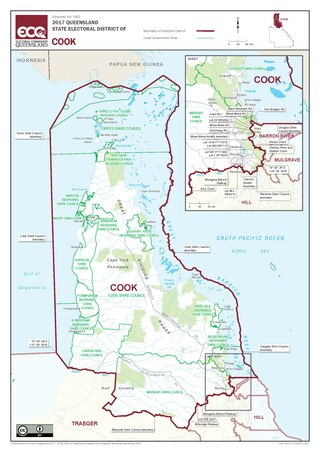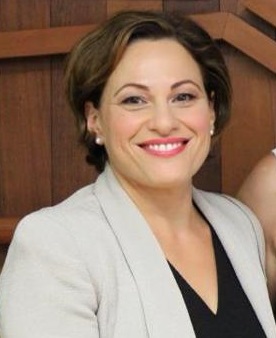The electoral system of Australia comprises the laws and processes used for the election of members of the Australian Parliament and is governed primarily by the Commonwealth Electoral Act 1918. The system presently has a number of distinctive features including compulsory enrolment; compulsory voting; majority-preferential instant-runoff voting in single-member seats to elect the lower house, the House of Representatives; and the use of the single transferable vote proportional representation system to elect the upper house, the Senate.
Electoral systems of the Australian states and territories are broadly similar to the electoral system used in federal elections in Australia.
The parliaments of the Australian states and territories are legislative bodies within the federal framework of the Commonwealth of Australia.
Elections in Australia take place periodically to elect the legislature of the Commonwealth of Australia, as well as for each Australian state and territory and for local government councils. Elections in all jurisdictions follow similar principles, although there are minor variations between them. The elections for the Australian Parliament are held under the federal electoral system, which is uniform throughout the country, and the elections for state and territory Parliaments are held under the electoral system of each state and territory. An election day is always a Saturday, but early voting is allowed in the lead-up to it.
In Australia, referendums are public votes held on important issues where the electorate may approve or reject a certain proposal. In contemporary usage, polls conducted on non-constitutional issues are known as plebiscites, with the term referendum being reserved solely for votes on constitutional changes, which is legally required to make a change to the Constitution of Australia.

The Australian republic referendum held on 6 November 1999 was a two-question referendum to amend the Constitution of Australia. The first question asked whether Australia should become a republic, under a bi-partisan appointment model where the president would be appointed by Parliament with a two-thirds majority. This was the model that was endorsed by the Constitutional Convention, held in Canberra in February 1998. The second question, generally deemed to be far less important politically, asked whether Australia should alter the Constitution to insert a preamble.

The Lord Mayor of Brisbane is the chief executive of the City of Brisbane, the capital of the Australian state of Queensland, and the head of the Brisbane City Council. Lord Mayor Adrian Schrinner of the Liberal National Party was sworn in on 8 April 2019, following the resignation of Graham Quirk.

The Legislative Assembly of Queensland is the sole chamber of the unicameral Parliament of Queensland established under the Constitution of Queensland. Elections are held every four years and are done by full preferential voting. The Assembly has 93 members, who have used the letters MP after their names since 2000.

Elections were held in the Australian state of Queensland on 19 September 1992 to elect the 89 members of the state's Legislative Assembly.

Cook is an electoral district in Queensland, Australia.

The 2009 Queensland state election was held on 21 March 2009 to elect all 89 members of the Legislative Assembly, a unicameral parliament.
Daylight Saving for South East Queensland (DS4SEQ) was a political party in Queensland, Australia. It was a single-issue party, run by volunteers, that advocated the introduction of Daylight Saving into Queensland, or at the very least into South East Queensland under a dual-time zone arrangement - with the remainder of the state to maintain standard time. The party proposed a possible dual time zone, which included the following 15 local and regional government areas: Brisbane, Fraser Coast, Gold Coast, Goondiwindi, Gympie, Ipswich, Lockyer, Logan, Moreton Bay, Redland, Scenic Rim, Somerset, Southern Downs, Sunshine Coast, and Toowoomba. The party was officially registered with the Electoral Commission of Queensland (ECQ) in December 2008 and was not registered with the Australian Electoral Commission. In August 2012, DS4SEQ submitted a request to the ECQ to deregister the party, and this process was finalised in October 2012. DS4SEQ maintains a presence as a lobby group and may potentially re-register as a political party in the future. Jason Furze was leader of the party from December 2008 until June 2011.

The 2012 Queensland state election was held on 24 March 2012 to elect all 89 members of the Legislative Assembly, a unicameral parliament.

Jacklyn Anne Trad is an Australian former politician. She was Deputy Premier of Queensland from 2015 to 2020, Treasurer of Queensland from 2017 to 2020 and represented the Electoral district of South Brisbane for the Labor Party from April 2012 to October 2020.
A by-election for the Queensland Legislative Assembly seat of Redcliffe took place on 22 February 2014. Yvette D'Ath won the seat for Labor.

The 2017 Queensland state election was held on 25 November 2017 to elect all 93 members of the Legislative Assembly of Queensland, the unicameral Parliament of Queensland.
Section 13 of the Constitution of Australia provides for three aspects of the terms of members of the Australian Senate: the timing of elections, the commencement date of their terms and for the Senate to allocate long (six-year) and short (three-year) terms following a double dissolution of the Parliament of Australia. While members of the House of Representatives and territory senators have a maximum three-year term, state senators have a fixed six-year term, subject only to the parliament being dissolved by a double dissolution.

The 2020 Queensland state election was held on 31 October to elect all 93 members to the 57th Legislative Assembly of Queensland. The Labor Party was returned to government for a third-term, led by incumbent premier Annastacia Palaszczuk. With 47 seats needed to form a majority government, Labor won 52 seats, including all but five in Brisbane, while the Liberal National Party won 34 seats and formed opposition. On the crossbench, Katter's Australian Party retained its 3 seats, the Queensland Greens picked up South Brisbane for a total of 2, Pauline Hanson's One Nation retained Mirani and independent Sandy Bolton retained her seat of Noosa.
The Queensland parliamentary term extension referendum was a one-question referendum held in the Australian state of Queensland on 23 March 1992. Electors were asked if they approved of extending the maximum term of the Parliament of Queensland from three years to four years. The referendum was conducted by the Electoral Commission Queensland (ECQ).

The 2024 Queensland state election is scheduled to be held on 26 October 2024 to elect all members to the Legislative Assembly of Queensland pursuant to the Constitution Amendment Act 2015. As a result of the 2016 Queensland term length referendum, the term of the parliament will run for four years.












